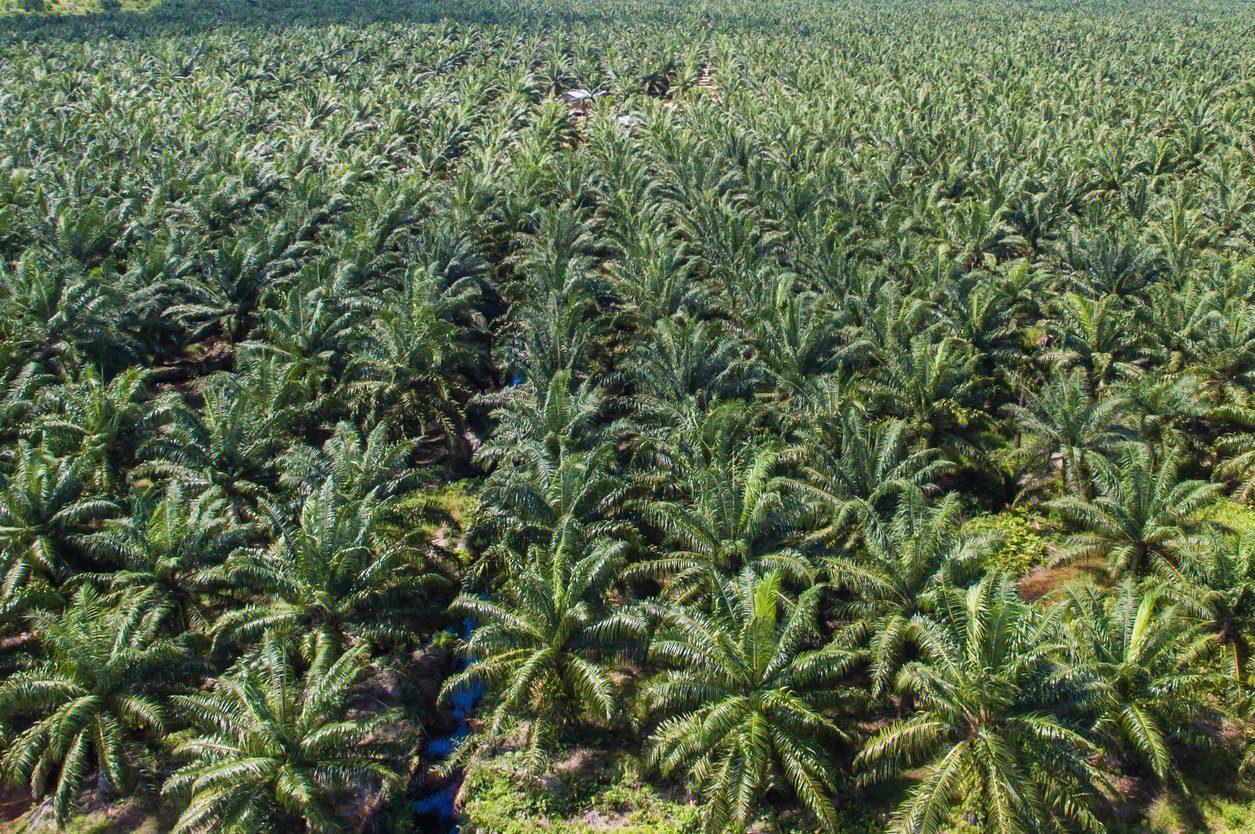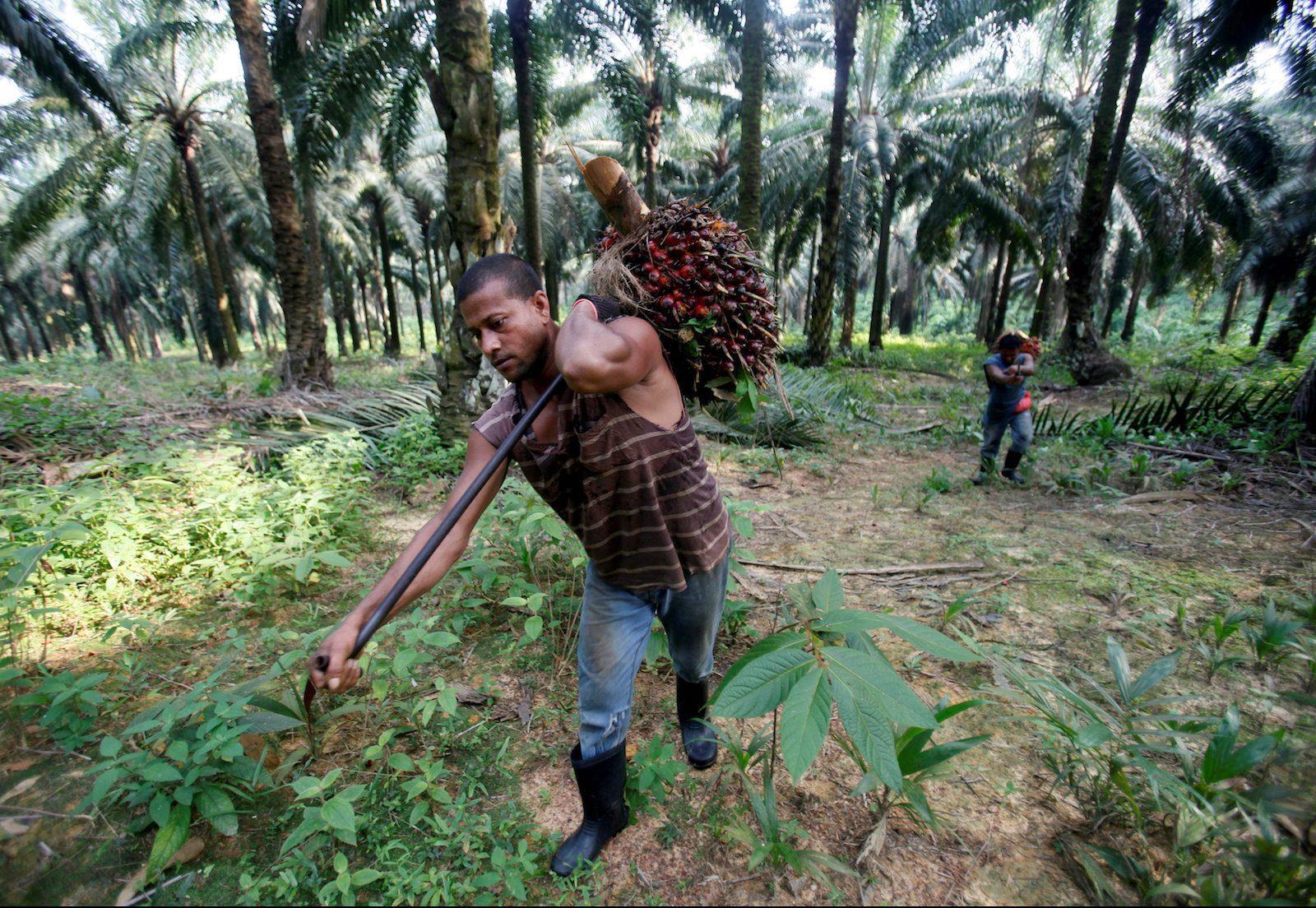(MENAFN- Asia Times)
SINGAPORE – Indonesia's controversial ban on palm oil exports has sent global edible oil prices soaring, creating a supply gap that Malaysia is in a pole position to fill. But ongoing labor shortages due to more than two years of Covid-19 border curbs have left the country ill-equipped to fully capitalize on a golden opportunity to expand its market share.
Zuraida Kamaruddin, Malaysia's Plantation Industries and Commodities Minister, has nonetheless reassured markets that global demand would be met by raising production, promising new foreign worker arrivals in May and June after plans to add more labor have stalled for months. Malaysia and Indonesia jointly account for 85% of global palm oil output.
Apart from Indonesia's haphazard export ban, enacted to tamp down soaring domestic prices, vegetable oil prices climbed to all-time highs in March after Russia's invasion of Ukraine disrupted sunflower oil shipments and drought in South America led to reduced soybean production in Brazil, the world's biggest exporter of the oilseed.
Supply uncertainties have so far benefited Malaysian palm oil, with exports to the European Union, where the commodity had been increasingly shunned due to environmental and forced labor concerns, surging 48.3% in March compared with February, while exports to India, the world's largest importer of edible oils, rose 20.8% in March.
Malaysia has said it plans to leverage the edible oil shortage and conflict in Ukraine to fill the global supply gap in the long run, with Zuraida recently vowing “aggressive efforts and campaigns” to counter negative publicity and regain market share in EU, stating emphatically that the Southeast Asian nation“will not want to waste a good crisis.”
But with its palm oil output at less than half of its rival Indonesia, the world's largest exporter, accounting for 56% of global palm oil exports ahead of Malaysia at 31%, commodities experts say Malaysia lacks the policy and physical infrastructure to retain the market share it gains amid the supply crisis.
“Malaysia will be able to accelerate and capture some market share from Indonesia in the short term, but not entrench its market share,” said Sathia Varqa of Singapore-based market advisory firm Palm Oil Analytics (POA).“This is because Indonesia is likely to lift the export ban anytime soon, most likely this month.”

An aerial view of a Malaysian palm oil plantation. Photo: iStock
Indonesia announced a ban on exports of all palm oil derivatives on April 27 after earlier measures requiring exporters to set aside quantities for domestic use failed to bring down cooking oil prices. But the protectionist policy is unlikely to last more than a month, say analysts, due to limited infrastructure to store surplus oil.
To gain an edge and benefit from shifting demand, Malaysia is considering to cut temporarily its palm oil export tax from 4% to 6% from the current 8% and slow the implementation of its biodiesel mandate to prioritize food industries, said Zuraida on May 10, adding that a decision on the matter could be made as early as June.
The plantations minister said Malaysia's palm oil production and exports are expected to rise 30% by the end of this year, and that some 32,000 migrant workers approved last September would begin to arrive this month under a special government quota. Analysts, however, say more manpower is needed to overcome the labor shortage.
“In total, the Malaysian plantation industry requires at least 75,000 workers,” said Chong Hoe Leong, a commodities analyst with Public Investment Bank (PIVB). Output has nonetheless grown for the second straight month, he added, with production expanding 3.6% from March to 1.46 million tonnes, its highest since November.
Another concern facing Malaysian exporters is stagnating plantation yields, which have decreased over the last decade and were made worse by the acute labor shortage during the pandemic, with fewer workers available to harvest and fertilize the perishable palm fruits, leading to billions of dollars in lost revenue.
“One area in particular which has been neglected due to the labor shortage is the pruning of the palms,” said Julian Conway McGill, head of Southeast Asia at agribusiness consultancy LMC International.“This, along with other maintenance like weeding and fertilizing, and prompt processing, will need to be rectified before yields can recover.”
Plantation workers, around 80% of whom are Indonesian migrants, typically harvest palm oil fruit once every 10 to 14 days. But amid the labor shortage, smaller plantations have resorted to only harvesting once a month. Last month, Human Resources Minister M Saravanan said that arrangements to bring in nearly 180,000 foreign workers were underway.
“Frequent harvesting rounds are a crucially important component in ensuring high yields,” McGill continued.“Even if labor issues were solved overnight, supply cannot be increased to meet demand in the short run. Given that Indonesian palm production is more than double the size of Malaysia, they certainly cannot replace Indonesia.”

Workers collect oil palm fruits at a plantation in Sungai Tengi, Malaysia. Photo: iStock
The commodities expert agreed that Indonesia's export ban would likely be lifted before the end of May. But McGill went on to cast doubt on Malaysia's capacity to take and retain market share from Indonesia, pointing to Jakarta's support for its domestic refining industry through a system of differential export taxes, which has raised output.
“Once Indonesian exports resume they will continue to take market share in refined oils from Malaysia, particularly as the export taxes are encouraging large investment in processing and their output is still growing, albeit slowly, while Malaysian production has stagnated,” McGill told Asia Times.
He added that the demand shift to palm oil, particularly within the EU, would likely be short-lived.“Companies which recently announced that they will under duress return to palm oil will no doubt resume their anti-palm oil position once the cost of doing so has been reduced to a point where they feel it is sufficiently remunerative,” said the consultant.
Malaysia and Indonesia have said an EU directive to phase out palm oil-based biofuels by 2030 due to high greenhouse gas emissions linked to the cultivation of the commodity is discriminatory. Both nations have brought separate cases to the World Trade Organization (WTO) challenging the directive.
The EU directive ruled in 2018 that palm oil cultivation results in excessive deforestation and cannot be considered a renewable transport fuel. Malaysia and Indonesia have accused the EU of creating an unreasonable trade barrier and implementing the directive without considering their views and shift toward more sustainable harvesting practices.
Meanwhile, record-high prices amid the supply crisis have led to a deeper-than-expected fall in Malaysian palm oil exports, which contracted by 17.7% in April, the lowest in 14 months. Palm oil's price premium is expected to be temporary, say commodities experts, with a price correction to follow as production ramps up and Indonesia's export ban is lifted.
“Prices are still volatile but down by 9% from a record high of 7,104 ringgit (US$1,632) notched on April 29,” said Varqa of POA.“Prices will move lower still as seasonal high production kicks in from June, improving supply outlook. Additionally, weak demand from China will fuel rising palm oil stocks in Malaysia and further pressure prices to move lower.”
Follow Nile Bowie on Twitter at @NileBowie
MENAFN13052022000159011032ID1104205974